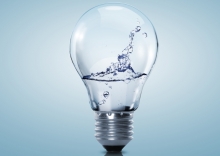- Research
Issue:
An EU-funded research project to develop a water biocontamination control system for demonstration use on the International Space Station is set to begin integration testing of the components, with laboratory and field testing to follow through to the end of the year.
The three-year Biocontamination Integrated Control for Wet Systems for Space Exploration (BIOWYSE) project is being funded under the EU Horizon 2020 programme. The project features use of UV-C LED water disinfection system engineering by AquiSense Technologies.
According to AquiSense, the aim of the project is to develop an integrated chemical-free system to control and monitor biomass growth in potable water systems on board the ISS. It says that the seven-company consortium involved has made significant progress on developing a potable water handing system for use in future manned space missions. The main components of the system have been developed in the first two years of the project. Among the advanced technologies included, the AquiSense UV-LED Decontamination Module inactivates bacteria with UV light using technology based on the company’s PearlAqua system.
UV disinfection is traditionally achieved using lamps. In a statement from AquiSense, CTO Jennifer Pagan comments: ‘The development of UV-C LED-based systems has spurred the development of an entirely new generation of UV technologies that are better suited for space exploration and other challenging environments.’
According to AquiSense, BIOWYSE foresees development and demonstration of an integrated biocontamination control system for water and humid areas, to be demonstrated on the International Space Station. The project stems from the results of actual flight experiments and state-of-the-art prevention, monitoring and mitigation technologies.
Keywords:
- UV LEDs, AquiSense Technologies, space, water treatment






